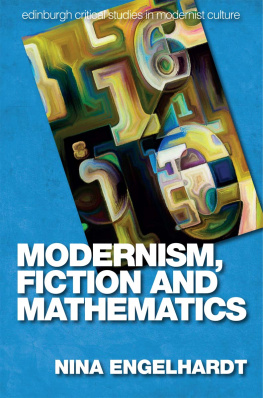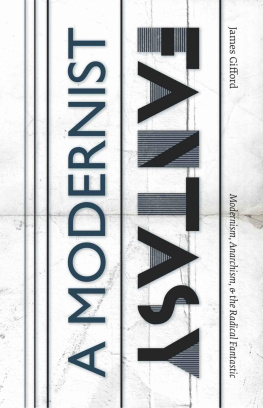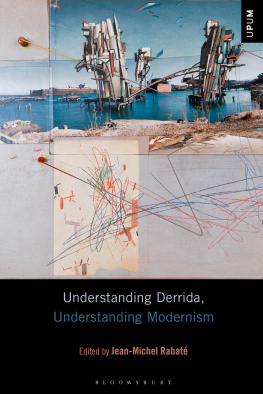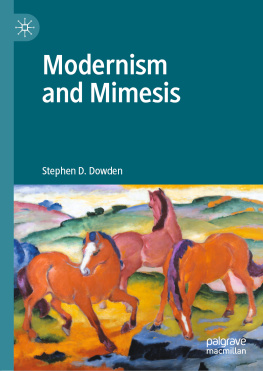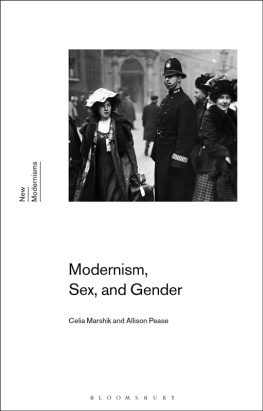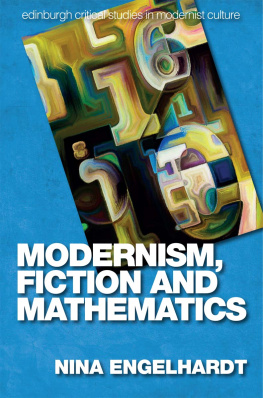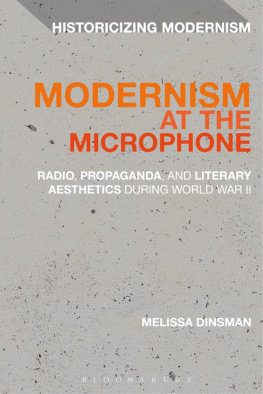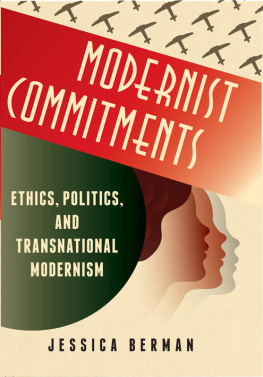
MODERNISM, FICTION AND MATHEMATICS
Edinburgh Critical Studies in Modernist Culture
Series Editors: Tim Armstrong and Rebecca Beasley
Available
Modernism and Magic: Experiments with Spiritualism, Theosophy and the Occult
Leigh Wilson
Sonic Modernity: Representing Sound in Literature, Culture and the Arts
Sam Halliday
Modernism and the Frankfurt School
Tyrus Miller
Lesbian Modernism: Censorship, Sexuality and Genre Fiction
Elizabeth English
Modern Print Artefacts: Textual Materiality and Literary Value in British Print Culture, 18901930s
Patrick Collier
Cheap Modernism: Expanding Markets, Publishers Series and the Avant-Garde
Lise Jaillant
Portable Modernisms: The Art of Travelling Light
Emily Ridge
Hieroglyphic Modernisms: Writing and New Media in the Twentieth Century
Jesse Schotter
Modernism, Fiction and Mathematics
Nina Engelhardt
Forthcoming
Modernism, Space and the City
Andrew Thacker
Slow Modernism
Laura Salisbury
Primordial Modernism: Animals, Ideas, Transition (19271938)
Cathryn Setz
Modernism and the Idea of Everyday Life
Leena Kore-Schrder
Modernism Edited: Marianne Moore and The Dial Magazine
Victoria Bazin
Modernism and Time Machines
Charles Tung
Visit our website at: edinburghuniversitypress.com/series-edinburgh-critical-studies-in-modernist-culture.html
MODERNISM, FICTION AND MATHEMATICS
Nina Engelhardt

Edinburgh University Press is one of the leading university presses in the UK. We publish academic books and journals in our selected subject areas across the humanities and social sciences, combining cutting-edge scholarship with high editorial and production values to produce academic works of lasting importance. For more information visit our website: edinburghuniversitypress.com
Nina Engelhardt, 2018
Edinburgh University Press Ltd
The Tun Holyrood Road, 12(2f) Jacksons Entry, Edinburgh EH8 8PJ
A CIP record for this book is available from the British Library
ISBN 978 1 4744 1625 2
The right of Nina Engelhardt to be identified as the author of this work has been asserted in accordance with the Copyright, Designs and Patents Act 1988, and the Copyright and Related Rights Regulations 2003 (SI No. 2498).
CONTENTS
ACKNOWLEDGEMENTS
I am thankful for and would like to acknowledge those who contributed to shaping this research project. First of all, I would like to thank Randall Stevenson from whose ideas and support I have profited enormously in the course of this project. The insightful comments and suggestions on chapters and presentations were immensely helpful in framing my ideas, and the general support, advice and encouragement were invaluable, both in the imaginary heights and along the real axis of the project. Simon Malpas and Paul Crosthwaite also offered much appreciated support over the years. I would like to thank the series editors Tim Armstrong and Rebecca Beasley as well as Adela Rauchova at Edinburgh University Press for their patience and support. For offering time and space to exchange ideas, work together, and find rest and diversion, I particularly thank Christin Hne, Julia Hoydis, Kelly Kawar, the PhD community at the University of Edinburgh, my colleagues from the a.r.t.e.s. research lab, and the mathematicians and scientists who generously offered information and criticism, most of all Harald Engelhardt and Michael Harris. For providing events, encouragement and inspiring conversations along the research process, I thank the British Society for Literature and Science, the International Pynchon Week and, not least, the Work in Progress Seminars at the Department of English Literature at the University of Edinburgh where this project began.
Rather predictably, these acknowledgements, too, end with more private thanks. If the general fact is not unusual, my individual experience has been singular and so are the people that have made it so. While writing this book, a couple of forks in the path have changed my life for the better: my brother who taught the valuable lesson that things are what they are and that it never is too late; and forming a small, temporary community with S., helping each other along a part of our ways. From the first to the very last, my family has been with me in this: most directly involved with this book was my father in whom, with his interest, dedication, mathematical understanding and literary curiosity, I have had a much valued Doktorvater over the years. But this research has been interrelated with other parts of my life that also demanded attention, put up real challenges, and were the source of much motivation and happiness, and yes, sometimes grace. My biggest thanks lie here and go to my parents and my sister: for continuous support and opening up singular chances, for helping realise what began as possibilities and wild flights of fancy, and for being there in the complexities of life. For my own, singular case, my family real, complex, sometimes purely improbable, and remaining delightfully surprising in their anarchical behaviour is the best of all possible families.
I wish to thank the following publishers for permission to quote:
From The Sleepwalkers by Hermann Broch, published by Martin Secker.
Permission granted by Penguin Random House Group Limited.
From Gravitys Rainbow by Thomas Pynchon, published by Jonathan Cape.
Reprinted by permission of The Random House Group Limited.
From Against the Day by Thomas Pynchon, published by Vintage, 2007.
Copyright Thomas Pynchon, 2006. Permission granted by Melanie Jackson Agency, LLC.
Part of
SERIES EDITORS PREFACE
This series of monographs on selected topics in modernism is designed to reflect and extend the range of new work in modernist studies. The studies in the series aim for a breadth of scope and for an expanded sense of the canon of modernism, rather than focusing on individual authors. Literary texts will be considered in terms of contexts including recent cultural histories (modernism and magic; sonic modernity; media studies) and topics of theoretical interest (the everyday; postmodernism; the Frankfurt School); but the series will also reconsider more familiar routes into modernism (modernism and gender; sexuality; politics). The works published will be attentive to the various cultural, intellectual and historical contexts of British, American and European modernisms, and to interdisciplinary possibilities within modernism, including performance and the visual and plastic arts.
Tim Armstrong and Rebecca Beasley
LIST OF ABBREVIATIONS
| AD | Thomas Pynchon, Against the Day |
| DSW | Hermann Broch, Die Schlafwandler |
| GR | Thomas Pynchon, Gravitys Rainbow |
| MM | Robert Musil, The Mathematical Man |
| MoE | Robert Musil, Mann ohne Eigenschaften |
| MwQ | Robert Musil, Man without Qualities |
| SW | Hermann Broch, The Sleepwalkers |
To my parents
Fr meine Eltern
INTRODUCTION: ALL THAT COUNTS MODERNISM, FICTION, MATHEMATICS
Mighty are numbers; joined with art, resistless. The suggestion that number bears power also relates to the argument of this book: mathematics is generally regarded as certain and true and believed to constitute authoritative knowledge; yet, literature draws on the privileged position of number and calculation for its own purposes and in the course thereof questions the established power structure of the disciplines.
Next page
